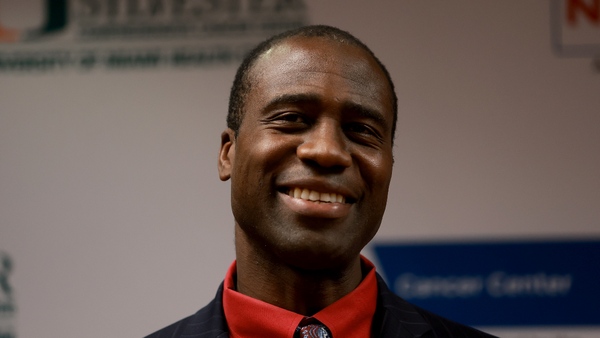
‘I’ve done my bit by having six children, so now you do yours”, Jacob Rees-Mogg demanded of GB News viewers recently. Not so long ago, politicians were panicking about overpopulation. Now many worry that there are – or will be – too few people in the world. “There is one critical outcome that liberal individualism has completely failed to deliver and that is babies,” one of the rising stars of the Tory party, MP Miriam Cates, told the National Conservatism conference in May.
The resurgence of such natalism has been provoked by falling birthrates across the globe. In 1950, according to a study in the Lancet, women were having an average of 4.7 children in their lifetime. By 2017, that had fallen to 2.4 and is predicted to fall below 1.7 by 2100. England and Wales are almost at that figure now, the birthrate having dropped from 2.9 in 1964 to 1.61 in 2021, marking, in Cates’ view, a “population collapse”.
In response, many countries are actively pursuing policies to increase the numbers of children born, though the efficacy of such programmes is debatable. In Japan and South Korea, decades of policymaking have done little to stem the downward trend.
In Europe, the charge towards more “family friendly” policies has been led by rightwing populist politicians, notably in Hungary, Poland and Italy. These programmes have won widespread acclaim from conservatives elsewhere.
There is, however, a paradox in rightwing natalism. Studies have shown that the biggest and longest-lasting impact comes from expanding good-quality, properly funded childcare and increasing paid parental leave, while tax reforms and cash transfers have, at best, small and temporary effects.
Yet conservative natalism often points in a different direction. In Britain, a pernicious policy of recent years has been the “two child” cap on benefit recipients, which punishes people for having too many children and drives larger families into poverty.
One might have thought that self-proclaimed natalists would oppose policies that penalise people for having larger families. Not so. Cates and Rees-Mogg both support the cap. Cates also objects to government plans to expand free childcare, arguing that instead there should be tax reform to persuade mothers to stay at home. Rightwing natalists may be desperate for people to have more babies, but only the right kinds of people and within the right family structure. Theirs is a policy programme linked to fears about immigration and demographic change, on the one hand, and the breakdown of traditional gender roles, on the other. Both fears have been exploited by western conservatives’ favourite natalist – Hungary’s Viktor Orbán.
In his 2019 state of the nation address, Orbán announced a series of natalist measures, including the waiving of income tax for women raising at least four children. Dismissing the idea that the answer to “fewer children born in Europe… is immigration”, he insisted that “we need Hungarian children…. Migration for us is surrender”.
“If, in the future, Europe is to be populated by people other than Europeans,” Orbán told a demography summit in Budapest later that year, “then we will effectively be consenting to population replacement: to a process in which the European population is replaced.” It was a deliberate nod to the “great replacement” theory – a far-right belief that the elites are replacing “indigenous” Europeans with immigrants. Immigration, he insisted at the next demography summit, “is an identity issue”. For him, only white Christians make acceptable migrants; others, especially Muslims, are “invaders”.
The linking of baby production with the protection of racial identity and western civilisation has a long history. At the end of the 19th century, the future US president Theodore Roosevelt claimed that “competition between the races” reduced itself “to the warfare of the cradle”. This has become a key motif within contemporary far-right circles. “The cradle”, Adriano Scianca, a leading member of the neo-fascist CasaPound organisation, argues, is “the most powerful weapon”; when “the baby cots are empty, civilisation dies”.
It is not just the far right that links civilisation to the cradle. As Orbán has become a lodestar for mainstream conservatives, so they have been drawn not just to his natalist policies but also to his demographic vision of the west. They increasingly worry about “white decline” and about Europeans being driven out of their “homeland”, and endorse the great replacement theory. Many yoke fears about the falling birthrate to a dread that Europe will lose its racial identity. “Fertility in Africa and the Middle East is sky-high,” bemoaned the novelist Lionel Shriver in a polemic against “The age of the anti-natalists”. Without drastic change, she continued, “European peoples and their diaspora will dwindle”.
If hostility to immigration is one pole of rightwing natalism, the other is the maintenance of traditional gender roles, the desire for more women to be stay-at-home mothers. The expansion of childcare, Cates argues, “devalues the crucial role of motherhood”. For Cates, “you cannot be socially liberal and economically conservative”.
In Hungary and Poland, natalist policies go hand-in-hand with restrictive policies on abortion and contraception. They also correspond to more hostile views of the gay community. “The western left attack the traditional family model,” Orbán insists, “by relativising the concept of the family” and promoting the idea that gay couples are equally capable of ensuring a flourishing family life. That, Orbán claims, is “LGBTQ propaganda”. Italy, too, under Giorgia Meloni, has joined in the legal assault on the gay community in the name of protecting traditional families.
There are good reasons for expanding affordable childcare and funding proper parental leave; not because this might increase the fertility rate but because such policies are good for women, for children and for society. There are good reasons for thinking more concretely about the consequences of falling birthrates and the policies needed to respond to it; and to acknowledge, too, that immigration cannot be the sole answer, but is likely to be part of it.
There are, though, no good reasons for using concern about birthrates to exacerbate hostility to immigration, to project divisive notions of identity and to restrict the rights of women and gay people. That is to enclose iniquity in a “family friendly” wrapping.
• Kenan Malik is an Observer columnist
Do you have an opinion on the issues raised in this article? If you would like to submit a letter of up to 250 words to be considered for publication, email it to us at observer.letters@observer.co.uk







